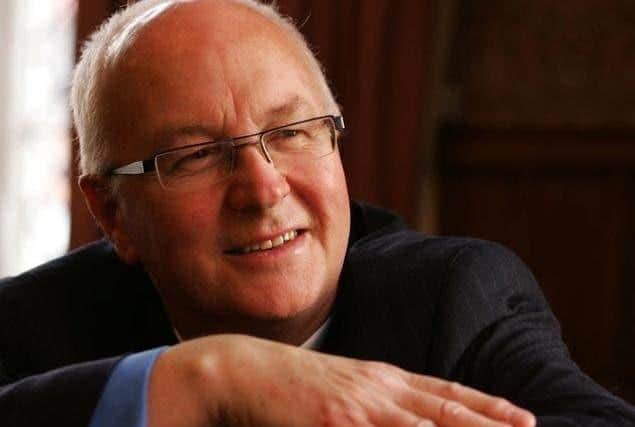Thought for the week Simone Weil - identifying with the poor
and live on Freeview channel 276
It has certainly forced many of us to realise, as we may not have realised before, just how fortunate we are in our affluent western societies. Someone remarked that to have been born an Englishman was to have won the jackpot in the lottery of life.
Across the globe millions live on the edge of hunger, with negligible health care and barely any educational opportunities. And when those things are compounded by war or political corruption the outlook is bleak. They are the losers in the lottery of life.
Advertisement
Hide AdAdvertisement
Hide AdLet me introduce you to someone who truly identified with life’s losers. Simone Weil was born into a Jewish family in Paris in 1909. She had a privileged upbringing and education, yet even as a young girl, she felt keenly for those who had no such advantages. World War 1 broke out when she was only five years old, and when she heard that soldiers at the front were being denied their ration of sweets, she voluntarily denied herself chocolate.


That lifestyle revealed itself again when she became a teacher. For one whole year she worked in a factory in solidarity with the labourers. In addition, she would give her salary to needy workers, and refuse to heat her apartment since the unemployed could not afford to heat theirs. Although she had a frail physique and never enjoyed glowing health, she would work in factories and farms.
At a vineyard where she worked eight hours a day, she would be too weak to stand, and often picked grapes lying down. She milked cows at dawn, peeled vegetables and helped local children with their homework. Her frail health broke down under such privations and she died of starvation in 1943 at the age of 34. She was someone who took poverty and injustice seriously.
She found her inspiration in the example of Alexander the Great. The great soldier was crossing a desert with his soldiers in 325 BC. When his soldiers brought him water in an upturned helmet, he poured it out onto the sands.
Advertisement
Hide AdAdvertisement
Hide AdIf Alexander had drunk the water, Simone Weil was to write, ‘Alexander’s well-being would have separated him from his soldiers…..Every saint has poured out the water; every saint has rejected all well-being that would separate him from the sufferings of men.’
The Bible student will recall a similar incident in the life of great King David (2 Samuel 23; 13-17). While at University Weil won a first prize for philosophy, just ahead of another Simone, Simone de Beauvoir. The two were to meet again later in life. Weil said that nothing matters but the revolution that would feed the poor, to which Beauvoir replied that we should also care about life’s meaning.
‘It’s clear you’ve never gone hungry’ was Weil’s response. Not all of us – perhaps none of us – can be Simone Weil. But we ought to ask ourselves what we can do to identify with those less fortunate than ourselves. And what better time to do it, than in these weeks leading up to Christmas.